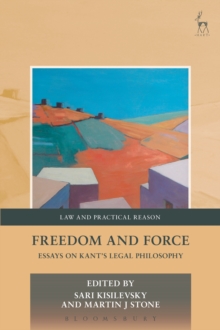
The Nature and Value of Vagueness in the Law Hardback
by Hrafn (University of Surrey) Asgeirsson
Part of the Law and Practical Reason series
Hardback
Description
Lawmaking is – paradigmatically – a type of speech act: people make law by saying things.
It is natural to think, therefore, that the content of the law is determined by what lawmakers communicate.
However, what they communicate is sometimes vague and, even when it is clear, the content itself is sometimes vague. This monograph examines the nature and consequences of these two linguistic sources of indeterminacy in the law.
The aim is to give plausible answers to three related questions: In virtue of what is the law vague?
What might be good about vague law? How should courts resolve cases of vagueness? It argues that vagueness in the law is sometimes a good thing, although its value should not be overestimated. It also proposes a strategy for resolving borderline cases, arguing that textualism and intentionalism – two leading theories of legal interpretation – often complement rather than compete with each other.
Information
-
Out of stock
- Format:Hardback
- Pages:216 pages
- Publisher:Bloomsbury Publishing PLC
- Publication Date:16/04/2020
- Category:
- ISBN:9781849466066
Information
-
Out of stock
- Format:Hardback
- Pages:216 pages
- Publisher:Bloomsbury Publishing PLC
- Publication Date:16/04/2020
- Category:
- ISBN:9781849466066










